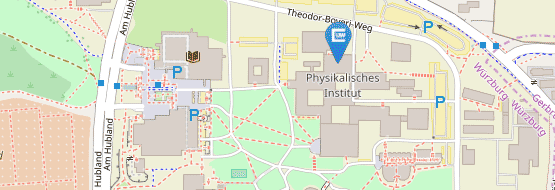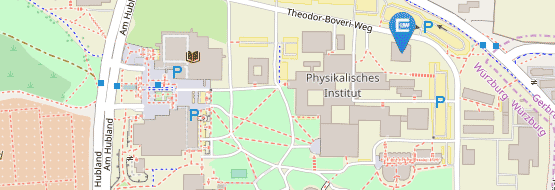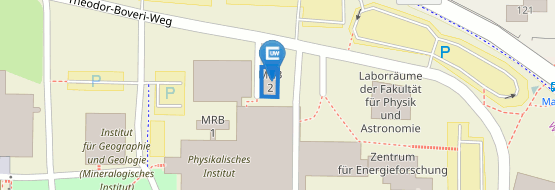Rotational Drift Spectroscopy
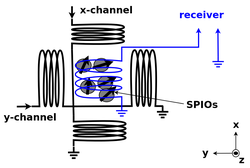 In addition to our work in the field of conventional MPI based on the non-linear magnetization behavior of magnetic nanoparticles (MNPs), we are developing a new relaxation-based method for the highly sensitive examination of the properties of MNPs in liquid suspension. This method called rotational drift spectroscopy (RDS) was presented for the first time at the International Workshop on Magnetic Particle Imaging in 2014 by our group.
In addition to our work in the field of conventional MPI based on the non-linear magnetization behavior of magnetic nanoparticles (MNPs), we are developing a new relaxation-based method for the highly sensitive examination of the properties of MNPs in liquid suspension. This method called rotational drift spectroscopy (RDS) was presented for the first time at the International Workshop on Magnetic Particle Imaging in 2014 by our group.
The concept of RDS is based on the nonlinear rotational drift behavior of MNPs in rotating magnetic fields. This drift occurs when the strength of the external rotating field is insufficient to overcome the rotational friction of the magnetic particles, as described by McNaughton et al.. This results in an asynchronous rotational drift of the magnetic particle. The effective frequency of this drift is below the rotating frequency of the magnetic field and strongly depends on the strength of the rotating magnetic field and the rotational mobility of the given magnetic particle.
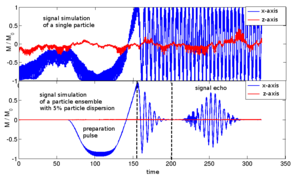 RDS measures the transient magnetic response of magnetic particles in the rotating field after perturbing the system, e.g. by applying a short uni-polar field pulse, which aligns all particles simultaneously at the start of the measurement. The alignment of the particles after the preparation pulse lasts only a finite time due to rotational diffusion and to different rotational drift frequencies among magnetic particles with different properties. The latter effect can be reversed by switching the rotating direction of the rotating magnetic field, resulting in a signal echo.
RDS measures the transient magnetic response of magnetic particles in the rotating field after perturbing the system, e.g. by applying a short uni-polar field pulse, which aligns all particles simultaneously at the start of the measurement. The alignment of the particles after the preparation pulse lasts only a finite time due to rotational diffusion and to different rotational drift frequencies among magnetic particles with different properties. The latter effect can be reversed by switching the rotating direction of the rotating magnetic field, resulting in a signal echo.
As the RDS signal highly depends on the properties of the MNPs as well as their interaction with the environment, it could be used to detect the binding of functionalized MNPs with e.g. proteins, viruses or cells with potentially very high sensitivity.
Contact:






